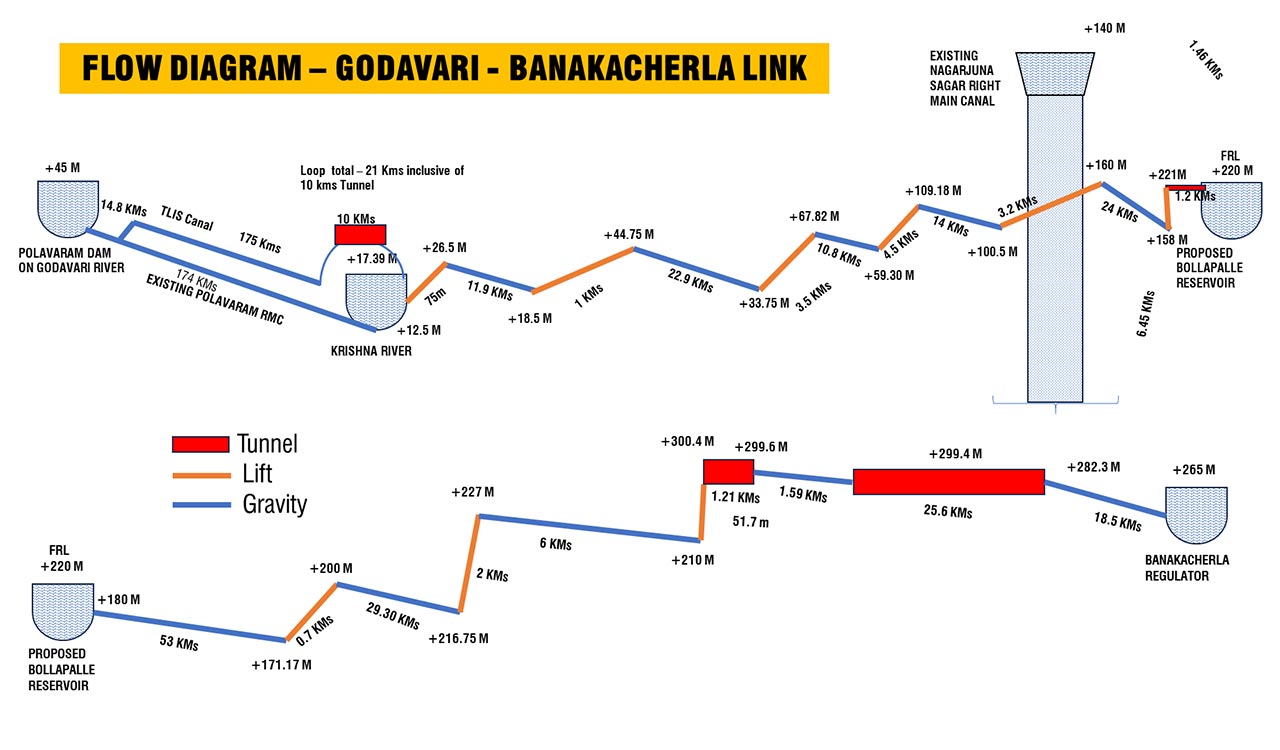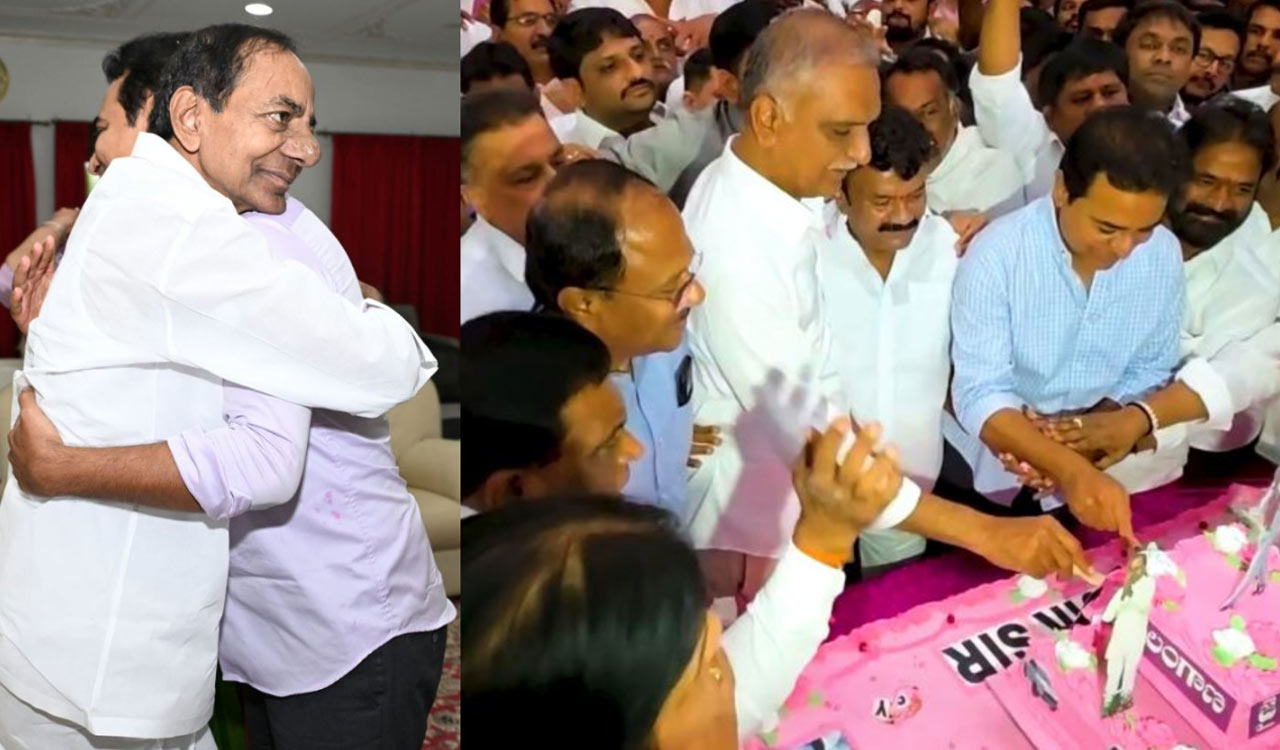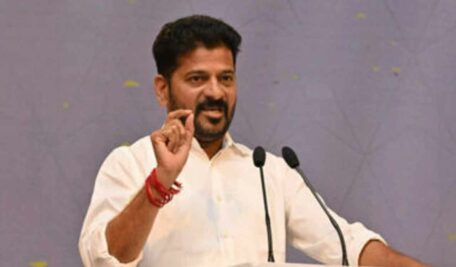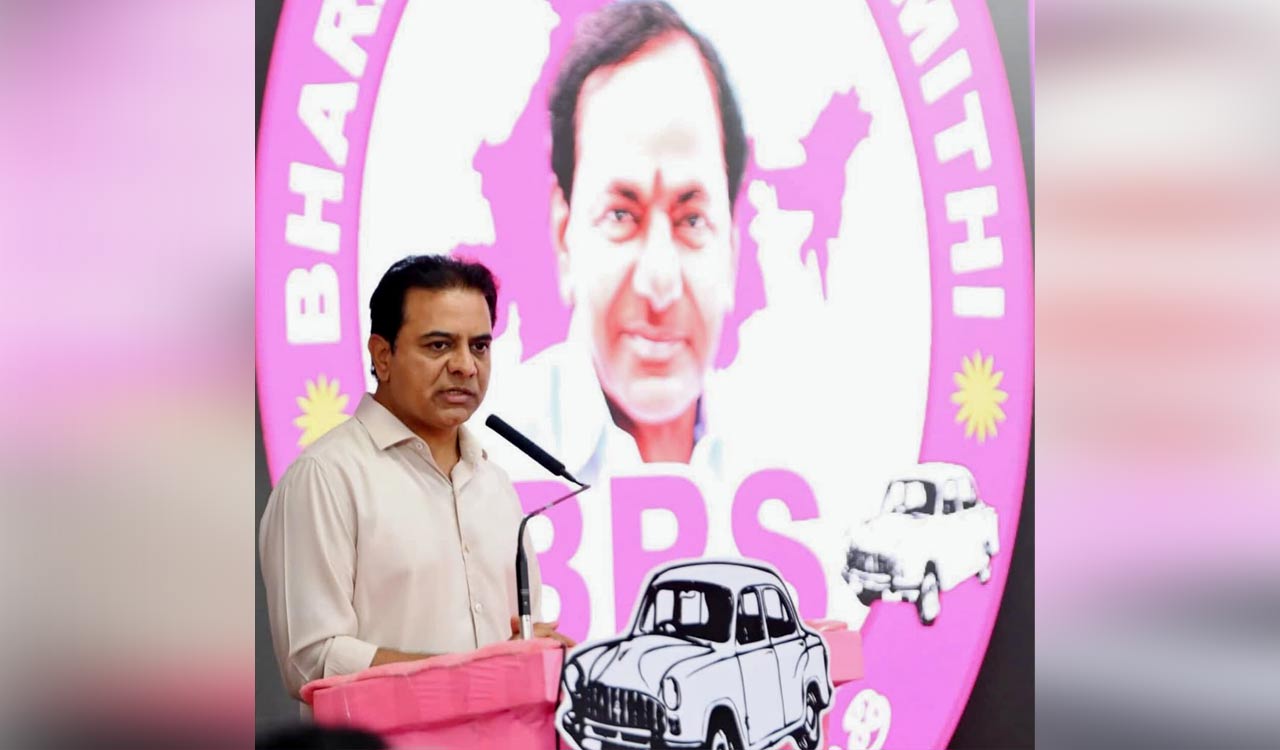Telangana’s water woes escalate as Banakacherla Project threatens both Krishna, Godavari entitlements
For the past ten years, Telangana has had operational control over the Nagarjuna Sagar Project (NSP), including the Right Main Canal’s head regulator. Later, Andhra Pradesh wrested control of the head regulator and 13 of the 26 crest gates of the project, with the intervention of the Union Home Ministry and the Ministry of Jal Shakti.

Hyderabad: A brewing water dispute between Telangana and Andhra Pradesh over the ambitious Godavari-Banakacherla Link Project has raised alarm bells in Telangana, with fears that the State’s rightful share of Krishna and Godavari river waters is under severe threat.
The project, championed by Andhra Pradesh Chief Minister N. Chandrababu Naidu, is being pushed forward under the guise of drought-proofing the Rayalaseema region, along with the Nellore and Prakasam districts. Telangana is now facing the risk of being deprived of its entitlement to waters from both Krishna and Godavari rivers. The deceptive plans of Naidu include diverting substantial volumes of Godavari and Krishna waters, undermining Telangana’s water security and violating legal frameworks.
The Banakacherla project, estimated at Rs 80,112 crore, aims to divert surplus Godavari waters to the Penna basin via the Krishna River. The project is structured in three segments: Segment I involves transferring water from the Polavaram project to the Prakasam Barrage on the Krishna River; Segment II channels water from the Prakasam Barrage to a proposed 150 TMC reservoir at Bollapalli in Guntur district; and Segment III diverts water from Bollapalli to the Banakacherla regulator in Nandyal district. The project is expected to provide drinking water to 80 lakh people and irrigate 7.5 lakh acres, primarily in Andhra Pradesh’s drought-prone Rayalaseema region.
Telangana’s concerns center on the operational control of the Nagarjuna Sagar Project (NSP) and its Right Main Canal, which plays a critical role in the Banakacherla project. For the past ten years, Telangana has had operational control over the NSP, including the Right Main Canal’s head regulator. However, following an ugly confrontation on October 28, 2023, between the forces of Andhra Pradesh and Telangana at the NSP dam, Andhra Pradesh wrested control of the head regulator and 13 of the 26 crest gates of the project, with the intervention of the Union Home Ministry and the Ministry of Jal Shakti.
This shift has left Telangana vulnerable, with fears that Andhra Pradesh’s control over the NSP Right Canal could mirror the controversial Pothireddypadu Head Regulator on the Srisailam project.
The Pothireddypadu Head Regulator, initially designed with a capacity of 11,000 cusecs, was incrementally enhanced by Andhra Pradesh to divert nearly half of the Krishna River’s flows from Srisailam, often at the expense of upstream Telangana. Similarly, Telangana fears that once the Banakacherla project becomes operational, the NSP Right Canal’s capacity, currently at 11,000 cusecs, could be scaled up fourfold to draw up to 4 TMC of water per day. Such an expansion would allow Andhra Pradesh exclusive access to the canal’s outlets, potentially depriving Telangana of its entitled share of Krishna waters.
The Godavari Water Disputes Tribunal (GWDT) of 1980 allocated 968 TMC of Godavari water to Telangana and 518 TMC to Andhra Pradesh, with no provision for surplus or floodwater allocation. Telangana contends that Andhra Pradesh’s claim of utilizing only “surplus” Godavari waters is misleading, as it could impact Telangana’s irrigation and drinking water projects dependent on the Godavari.
Adding to the concerns, the telemetry systems installed on the NSP Right Canal to monitor water drawals are reportedly unreliable, often tampered with or rendered non-functional during peak withdrawal periods. This lack of transparency further fuels Telangana’s fears that Andhra Pradesh’s drawals far exceed its entitled share, mirroring the overdrawals seen at Pothireddypadu.
Telangana’s interests in danger under Congress government
Telangana has vowed to escalate its water dispute with Andhra Pradesh, threatening to approach the Supreme Court if the Centre fails to intervene. However, under Chief Minister A. Revanth Reddy’s Congress government, Telangana’s water interests appear increasingly neglected.
Section 3 of the Inter-State River Water Disputes (ISRWD) Act, 1956, empowers a State to request the Centre to refer unresolved water disputes to a tribunal. During K. Chandrashekar Rao’s tenure as Chief Minister (2014–2023), this provision was actively invoked to secure Telangana’s fair share of Krishna and Godavari river waters post the 2014 bifurcation of Andhra Pradesh.
The KCR government had moved the Supreme Court to demand its rightful share of Krishna waters. In contrast, the Revanth Reddy government, despite assurances to protect State interests and its readiness to pursue legal recourse, attended a Jal Shakti Ministry meeting on the Banakacherla project and reportedly conceded to the demands of Chandrababu Naidu, a long-time associate of Revanth Reddy. It is viewed as a compromise that has undermined Telangana’s stand.
The BJP-led Centre favours Andhra Pradesh’s plans, including what Telangana alleges is the “exploitation” of Godavari waters through the Banakacherla project. Telangana BJP leaders, including eight MPs including two Union Ministers, have been notably silent, reportedly cautioned against opposing the party line.
Even Sriram Vedire, a water resources advisor to the Maharashtra government and former advisor to the Ministry of Jal Shakti, who initially opposed Banakacherla, arguing that no Indian project was approved in India so far based solely on floodwater availability, has softened his stance, possibly due to external pressures.
The Banakacherla link project, pushed through without the concurrence of riparian States, threatens catastrophic consequences for Telangana. It is expected to exacerbate the backwater effect of Andhra Pradesh’s Polavaram project, potentially inundating large areas of Telangana.
The State has proposed alternatives, such as the Inchampalli-Nagarjunasagar link project to divert Godavari waters to the Penna basin using central funds, aiming to balance both States’ interests. However, Andhra Pradesh’s submission of a pre-feasibility report for Banakacherla to the Central Water Commission signals a deepening conflict, setting the stage for a protracted legal and political battle.
Related News
-
Vahan portal to be rolled out in Hyderabad soon
3 mins ago -
SC dismisses plea, upholds conviction in Telugu actress Pratyusha death case
9 mins ago -
Hyderabad: Youngsters booked for posting reel offering marijuana as ‘Prasadam’
13 mins ago -
Ramzan rush: Hyderabad markets witness surge in date, grocery sales
23 mins ago -
Jangaon Municipality chairperson, vice chairperson election held amid protests
30 mins ago -
Hyderabad: 23 foreign nationals detained in Tolichowki cordon-and-search operation
32 mins ago -
C. Subramaniam Award presented to CDS Chairperson Mallepalli Laxmaiah
23 mins ago -
C Shekar Reddy to take over as CII-IGBC National Chairman
1 hour ago




